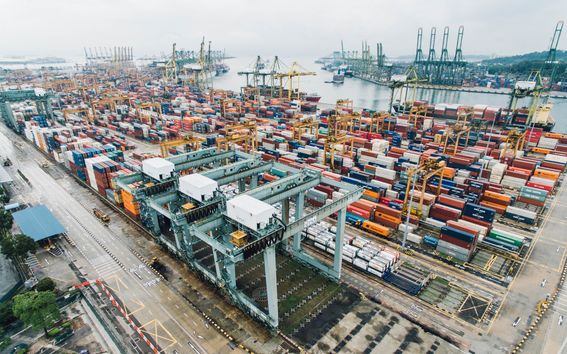Sustainability in Business (SUB) group awarded funding to research transition risks for low-carbon shipping and aviation

Researchers from the Sustainability in Business group integrate a research team of Department of Management Studies faculty to study how shipping and aviation manage transition risks in decarbonization for a future low-carbon economy.
The project, Managing Transition Risks in Risk Bearing Value Chains—T-Risk, is funded in the period 2021-2023 by the Wallenberg Foundation (Marcus Wallenbergin Liiketaloudellinen Tutkimussäätiö). The project is led by Professor of Practice Jouni Juntunen. The project will expand current understanding of how transition risks are constructed and managed by marine and aviation firms, and respective stakeholders such as regulators, policy-makers, institutional investors, experts, innovators, nongovernmental organizations, and civil society.
The maritime and aviation sectors have placed decarbonization as a top priority. Global trade and mobility are built upon high carbon-emitting transportation systems. For instance, value chain emissions are on average 5,5 times larger than direct and indirect emissions [1]. Thus, we need solutions to transition to a low-carbon economy, at least to limit global warming to less than 2°C in 2030-2050, a climate action deal made by governments in the Paris Agreement. These shifts are bold, complex, and challenging.
Managing transition risks in both sectors implies systemic changes. An effective transition to low-carbon shipping and aviation will likely have beneficial repercussions across sectors involved in global trade and also seeking to decarbonize, from fashion to food.
The T-Risk project investigates how firms identify, interpret, and manage the different transition risks through communicative practices, organizational routines, and in co-innovation with stakeholders. Ultimately, T-Risk aims to distill insights for those managing the transition risks of decarbonization, in particular policy-makers, management practice, innovation actors, industry organizations, and civil society actors.
Learn more about the project here.
[1] Carbon Trust. 2019. Cascading Commitments: Driving ambitious action through supply chain engagement. Carbon Disclosure Project Supply Chain Report 2018/2019.
Read more news

Significant donation to boost pavement engineering research and education
Companies and associations in the field have donated €400,000 to the School of Engineering.
‘Mesoscale’ swimmers could pave way for drug delivery robots inside the body
Researchers have discovered how tiny organisms break the laws of physics to swim faster — such secrets of mesoscale physics and fluid dynamics can offer entirely new pathways for engineering and medicine.
Design strengthens industrial competitiveness – human-centered factory work at the core
Factory work is undergoing a transformation: new technologies and artificial intelligence are changing the content and roles of work. Aalto University’s Department of Design is studying this change from a human-centered perspective in the HiFive project.






